UK Drive: The Kia Optima Sportswagon is a great value family estate
Think of the Kia Optima as the modern-day rep mobile – the equivalent of the Vauxhall Vectra for 2019.
15/01/2025
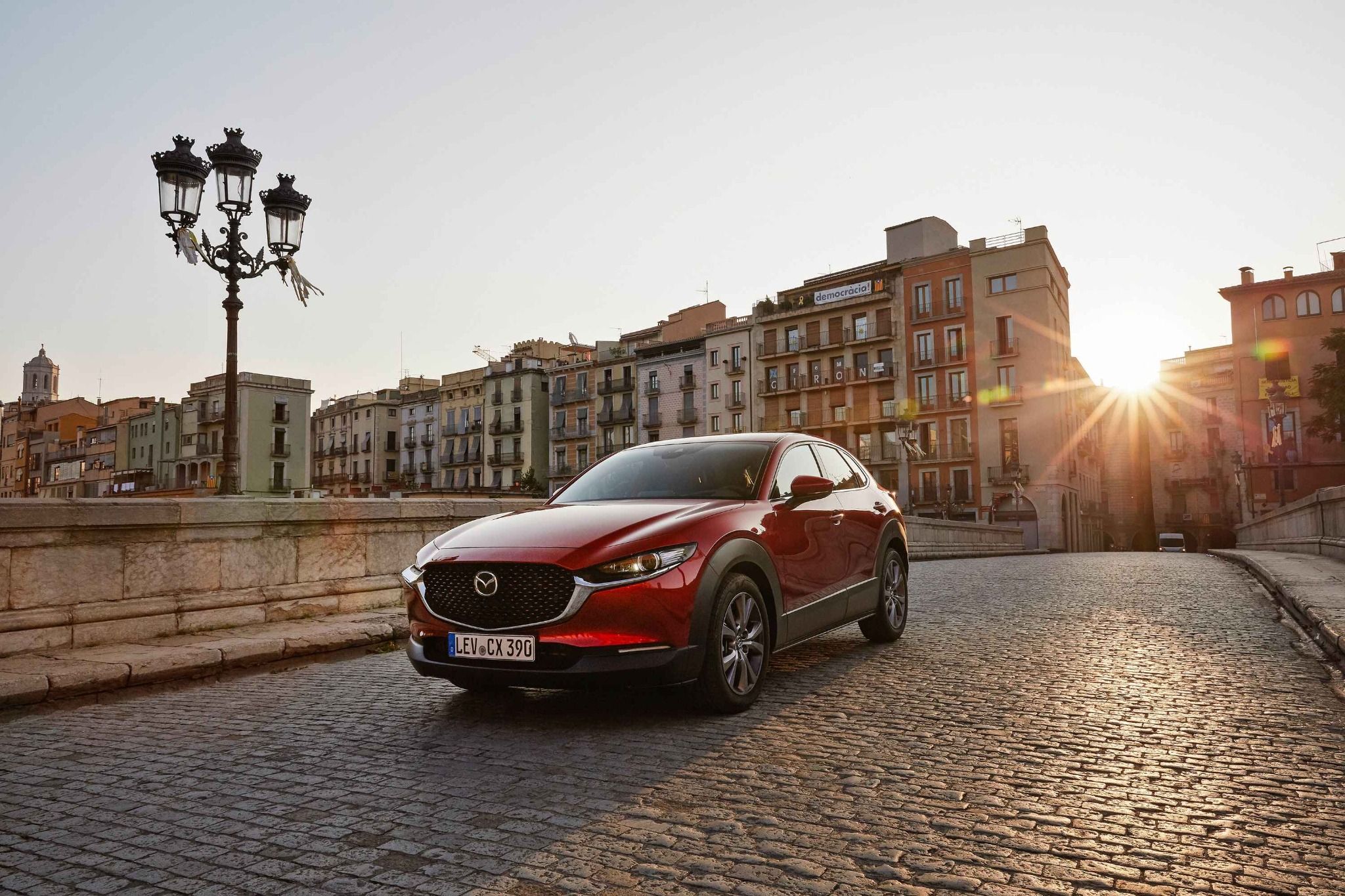
By Motor Match • 09/09/2019
Mazda has built a new small SUV to slot into another niche. Ryan Hirons headed to Girona to find out if it’s killer or filler.
SUVs play a strong role in Mazda’s current line-up, with the CX-5 first introduced in 2012 now one of its best sellers, followed by the compact CX-3. With this area of the market growing both in audience and niches, there are more gaps to fill — leading to this, the Mazda CX-30. Slotting between the CX-5 and CX-3, think of the CX-30 as akin to a Mazda 3 hatchback on stilts. The Japanese car manufacturer is hoping this new crossover can appeal to buyers looking for a little more space than the CX-3 who previously may have turned to offerings from other brands. Can it reap reward in the sales charts though? We get behind the wheel to find out…
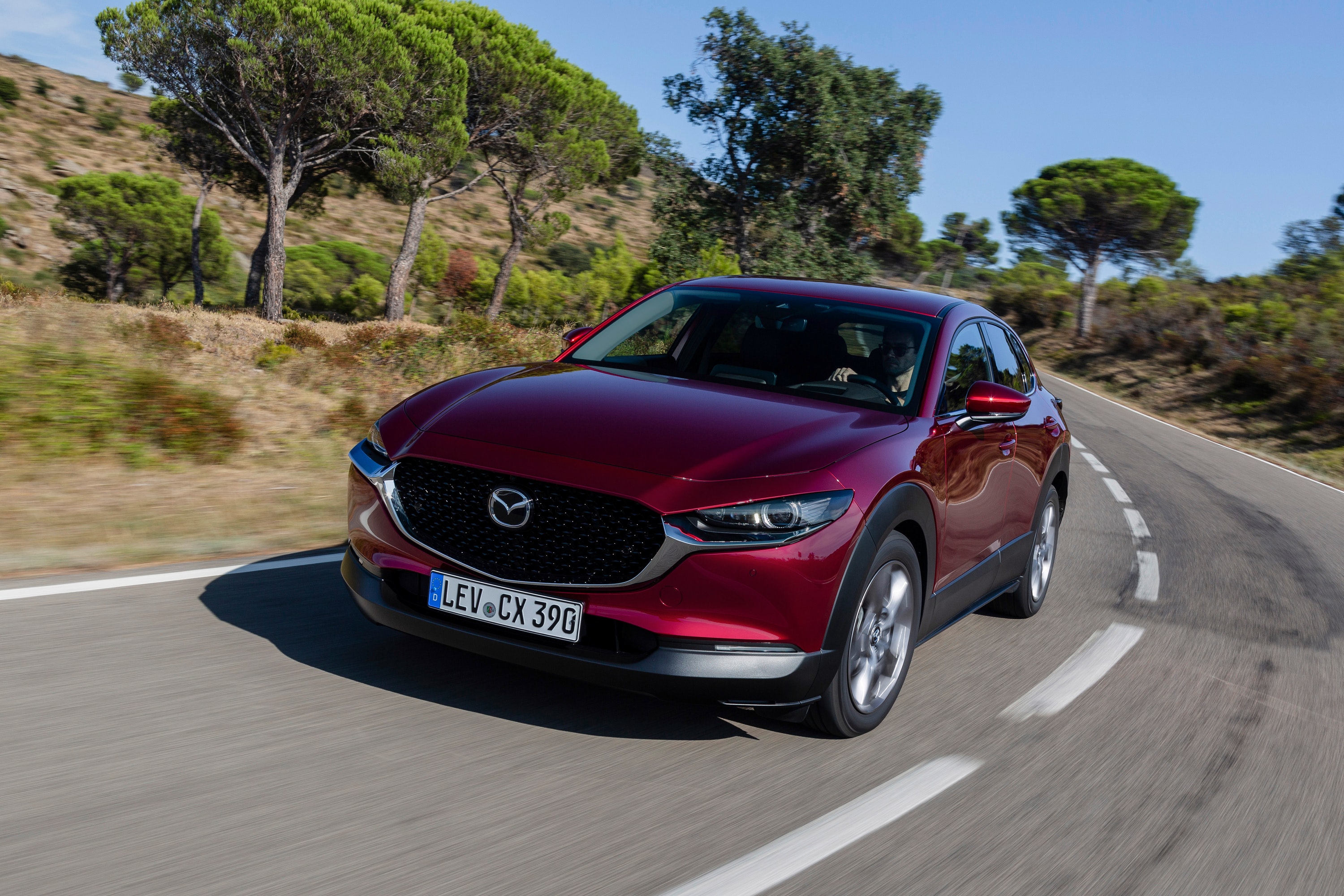
Breaking convention from the firm’s current CX list of names, the CX-30 is an all-new model for Mazda — and its third UK SUV offering. Mechanically similar to the 3 hatch introduced last year, it borrows a lot of new technology from that car — namely its Skyactiv-X engine technology and the firm’s latest and refined infotainment system.
Other new highlights include mild-hybrid technology and a first-for-Mazda navy blue interior option.
We’re trying out one of the two petrol engines available here in the UK — a 2.0-litre naturally-aspirated unit producing 120bhp and 213Nm of torque. Drive is sent to the front wheels via a six-speed manual gearbox, contributing to a 0-60mph time of 10.4 seconds and a 116mph top speed. It also incorporates a 24v mild-hybrid motor.
Mazda claims the CX-30 in this guise is capable of 45.6mpg while emitting 116g/km in CO2 emissions.
If refinement and ease of use are high on your shopping list, this might be a strong option. Power delivery is impressively smooth, while the engine can barely be heard even when wringing it out – perfect for those long-distance journeys. It’s fair to accuse it of feeling gutless though and really has to be worked to make the most of its output.
A brief turn in a Skyactiv-X car saw a more impressive level of torque available, though these pre-production units have yet to be finalised so we’ll hold full judgement off for now.
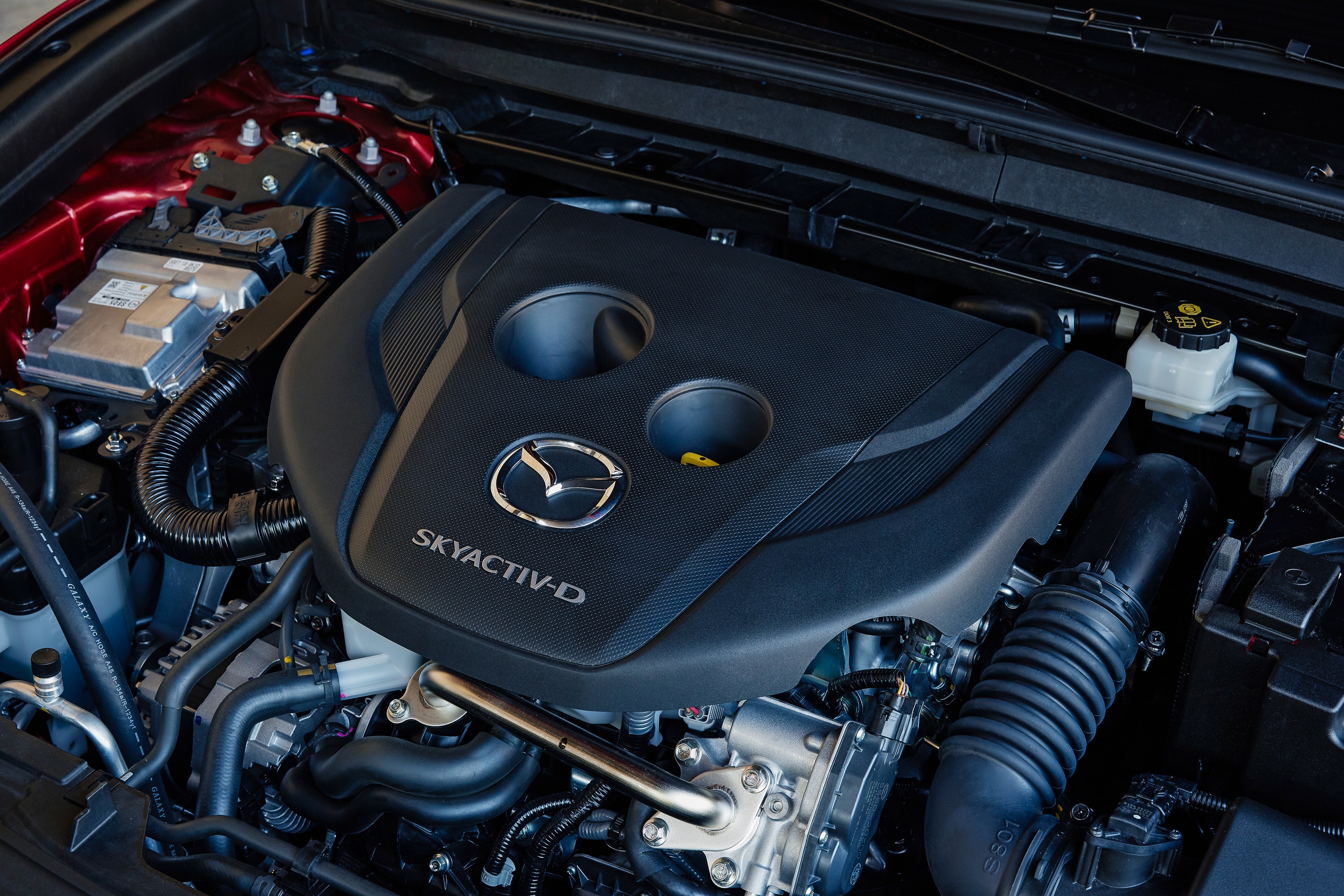
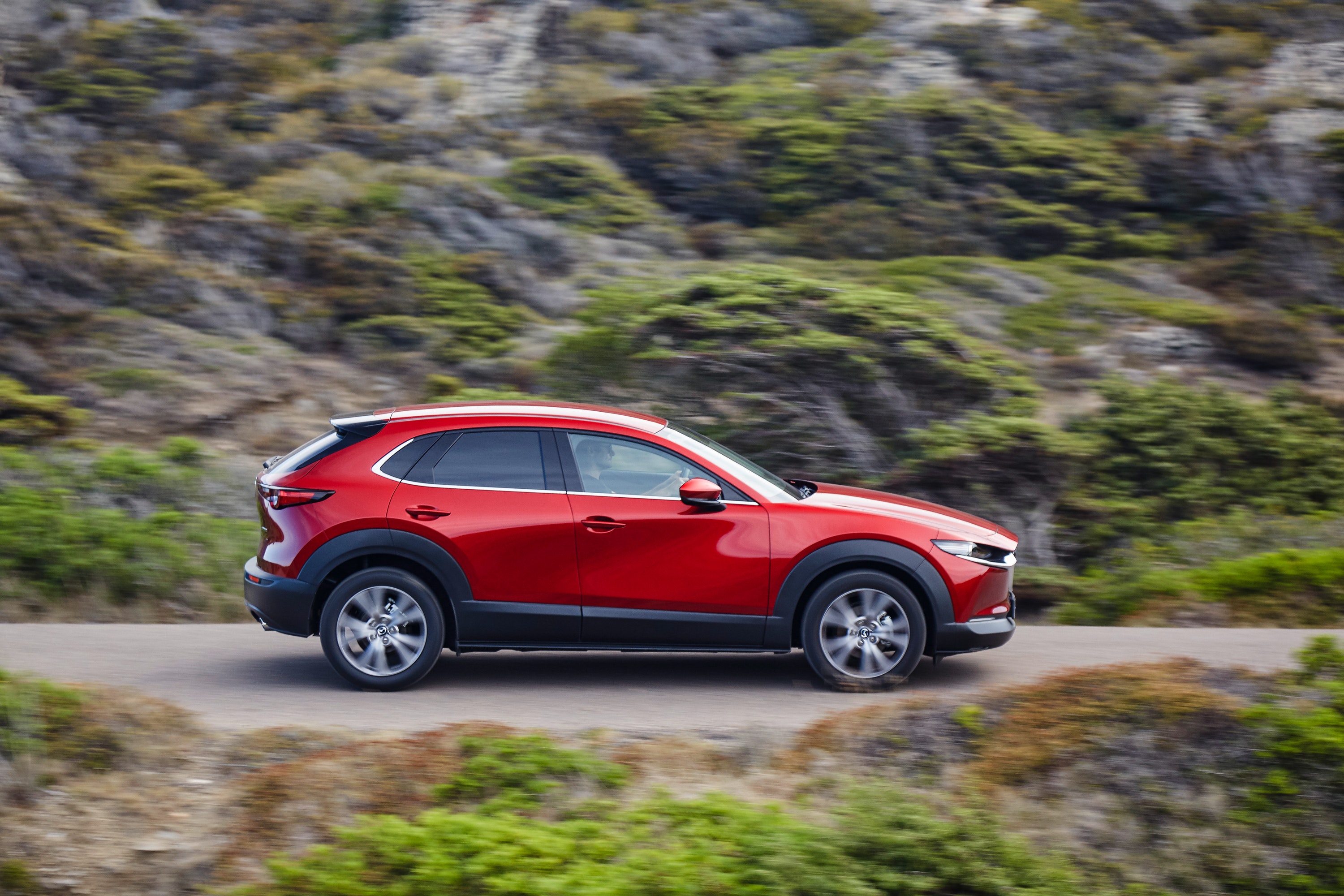
Mazda has built a reputation for creating engaging cars, and that’s the case with the CX-30. It feels stable even under harder cornering and can quite comfortably deliver some fun on tighter roads.
Around town, it’s a dream. Its impressive agility makes darting around easy, while excellent all-round visibility takes extra stress out of driving.
We touched on its low engine noise previously, and this, combined with a supple ride and low cabin noise in general, allows the car to be very relaxing when coasting along at motorway speeds. Few crossovers can claim to offer strong long-distance capability, but this is one of them.
The CX-30 uses the latest iteration of Mazda’s ‘Kodo’ corporate design, meaning slim headlights flank a large grille. At the back, a narrow single circle taillight design features, while smooth bodywork is present around the rest of the car rather than a more angular approach taken by some rivals.
We’d almost claim to be big fans of the overall design of the CX-30 — though the masses of plastic cladding let it down at the last hurdle. Mazda will tell you it’s to invoke a proper SUV spirit, but we’ll tell you it makes the car look cheap.
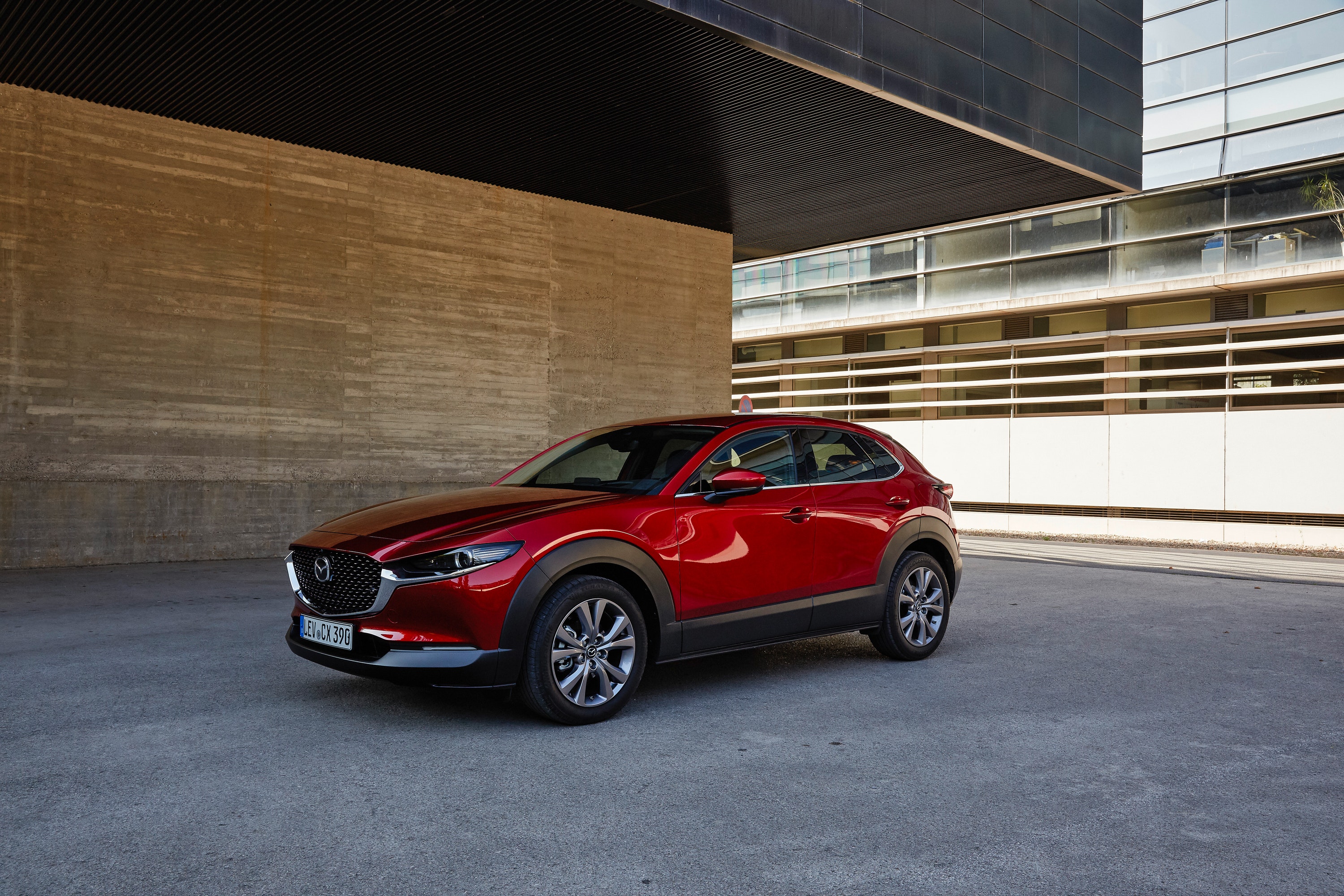
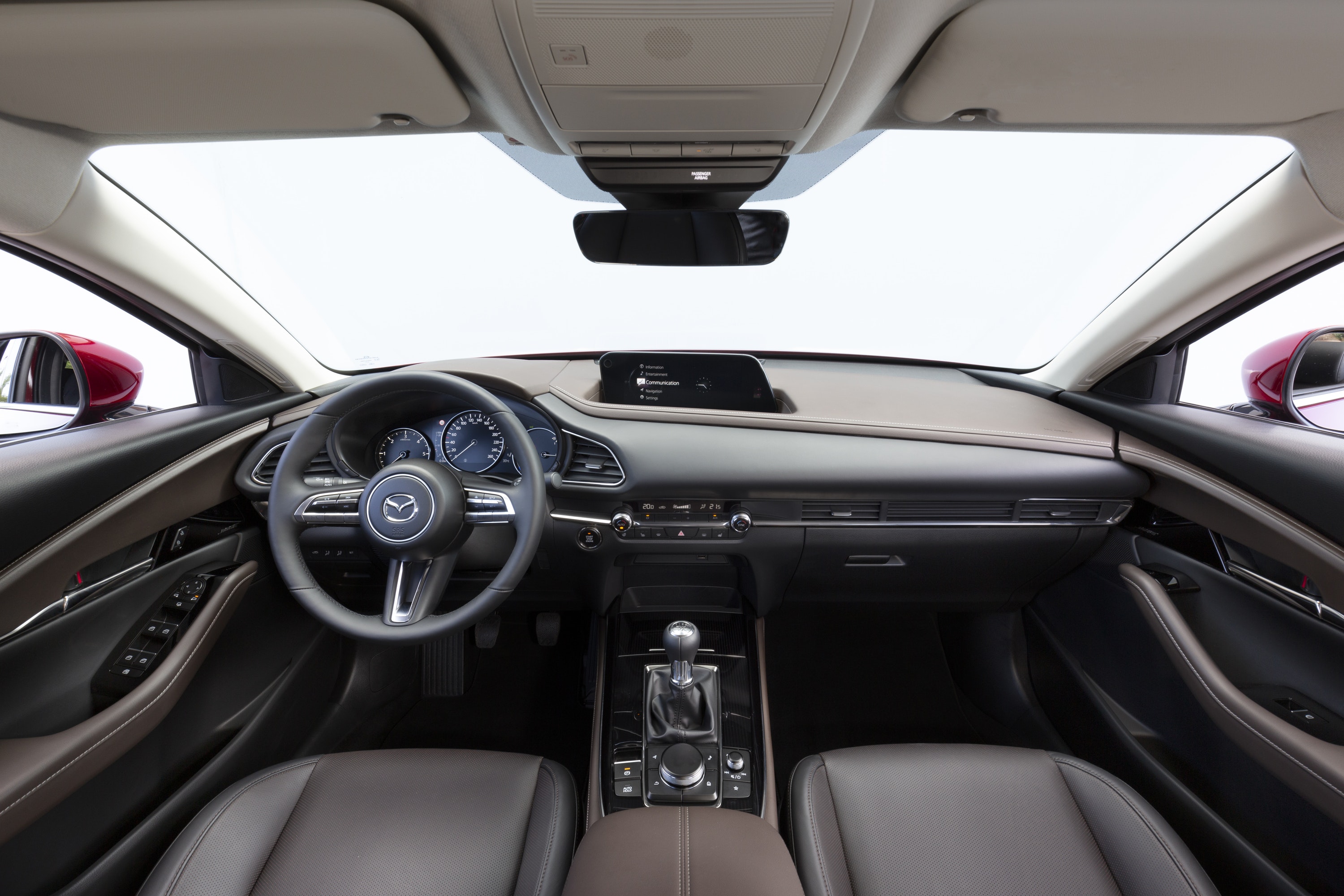
Hop inside the Mazda CX-30 and you’re met with a fairly minimalistic, but very well laid out cabin. Controls fall perfectly to hand, while materials used throughout really look the part. Take a touch of the dash and they don’t feel quite as nice as you’d expect, though to Mazda’s credit it uses these lower-quality materials in places you’re rarely likely to make contact with.
The cabin feels otherwise very spacious, with room in the back plentiful for an average-size adult. In terms of boot space, 422 litres are offered with the upgraded Bose stereo system — lacking slightly on the Volkswagen T-Roc’s 445-litre capacity and the Honda HR-V’s 448 litres.
As standard on the Mazda CX-30, standard equipment highlights include LED headlights, radar-guided cruise control, a head-up display, 16-inch alloy wheels and an 8.8-inch infotainment display with support for Apple CarPlay and Android Auto. Safety features coming at no extra cost are namely blind spot monitoring, rear cross traffic alert, driver attention alert, lane keep assist, lane departure warning and hill start assist.
Pricing for the SUV starts at £22,895, though our GT Sport Tech-equivalent test car weighs in at £27,995. Luxury additions here include 18-inch alloy wheels, all-round parking sensors with a reversing camera, automatic headlights, a heated electric driver’s seat, a handsfree tailgate, a brown and black leather interior plus the impressive Bose audio system.
It sounds pricey at the top end of the range, but the CX-30 does present a lot of equipment for the asking price.
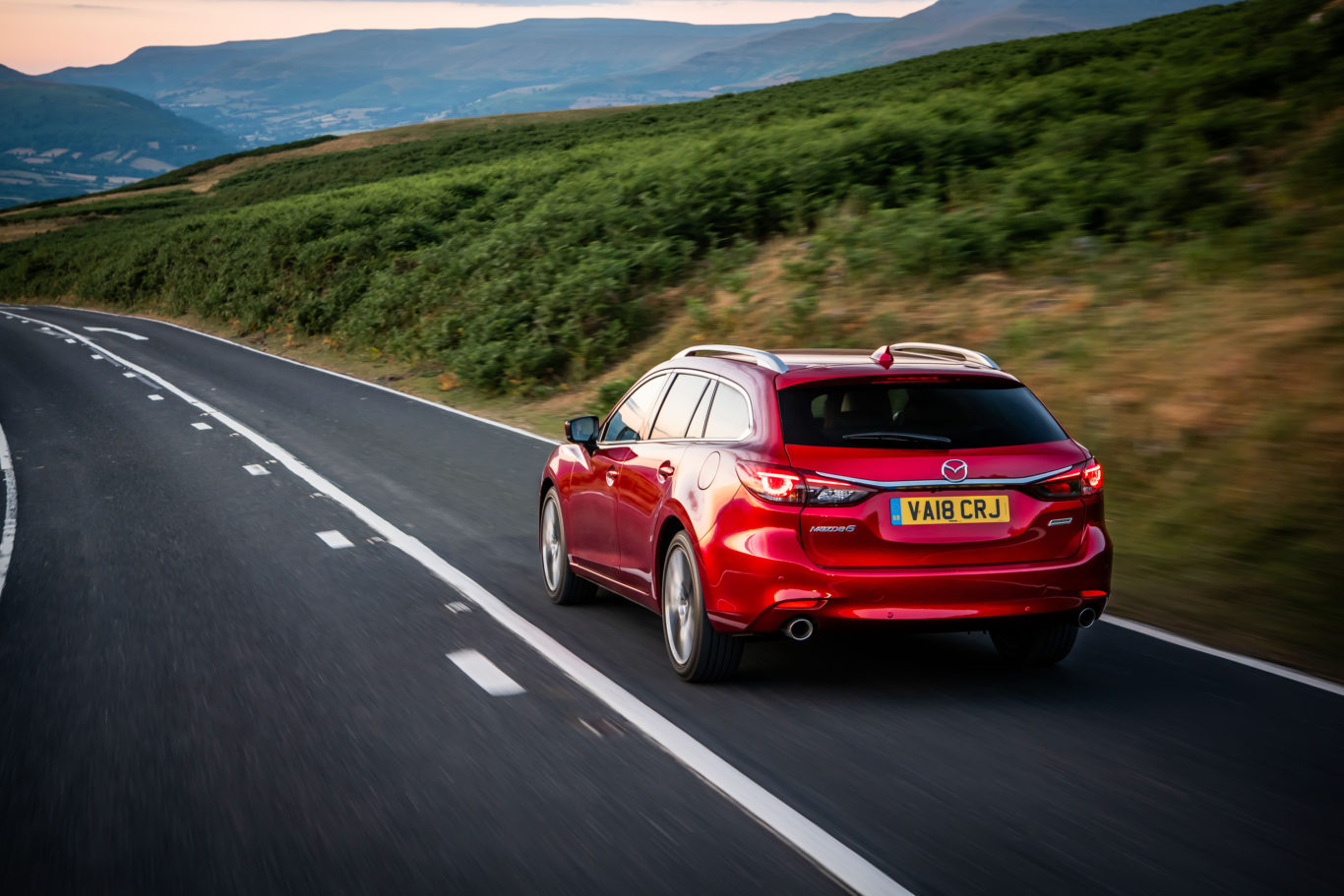
Mazda is on to another winner with its CX-30. It takes the firm’s ability to build an impressive-driving car, and sticks that into a well-kitted, spacious and impressively refined package.
Looks-wise, it nearly has the formula cracked but we really think the heavy use of plastic trimming doesn’t complement an otherwise well-styled car. The slight drop in boot space may put off some buyers, as may the gutless Skyactiv-G engine (X powertrains look set to rectify this, however) though its efficiency and comfort make up for those in our view.
You may also like…